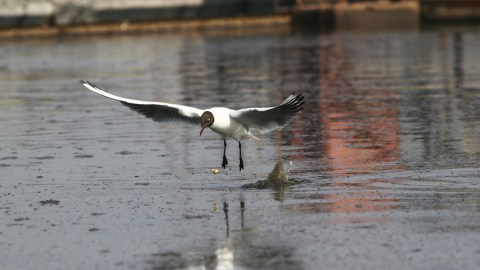Denying Free Will is Physics Reductionism at Its Absolute Worst

Free will is a personal obsession. I think it should be everyone’s personal obsession. I think that the debate over the existence of free will is so much more consequential than the debate over the existence of God.
Free will is at the core of our whole concept of right and wrong and morality and personal responsibility and so forth and so I have been really distressed both as an ordinary person and as a science journalist to see very prominent scientists over the last few decades undermining our sense that we have free will, that we are actually in some sense autonomous creatures who are capable of seeing these different options in our lives, seeing these different potential paths in front of us and choosing one path over the other.
Stephen Hawking in his last book said that obviously free will doesn’t exist. You know a lot of physicists would say that sort of thing. It’s physics reductionism at it absolute worst. I’m really distressed. A lot of leading neuroscientists are saying the same thing. I would think that they would know better. I interviewed Francis Crick back in the 90s before he died. Francis Crick co-discovered the double helix and one of the first people to start saying we can understand consciousness as the affect of physiological processes in the brain, basically said that once we really understand that we will see that we have no free will. And Crick pointed out that there are some experiments that have suggested that our decisions are proceeded by unconscious neuro-processes and so forth.
I’ve written a lot about this. I won’t bore you with the details, but it seems to me to be really the height of idiocy and irresponsibility for a leading scientist to say that there is no such thing as free will. Every single sentient creature has this sense of being able to make choices. Of course we’re constrained by our physical environment and by our own physiology. There are some people who have certain brain disorders that compel them to do certain things, whether its schizophrenia or obsessive compulsive disorder. You have addictions that undermine your ability to freely choose between different options. But one of the arguments that I use in defense of free will is that you have to have free will if some people have more of it than others.
So I have more free will now than when I was six months old. I have more now than 20 years from now when I’m like a foggy-minded, demented old coot. I have more than somebody who is in a prison. I think even those sorts of circumstances can help you understand free will. I really think of free will as pretty synonymous with freedom, the ability to recognize choices and to make the choice you want according to your own set of values.
The irony is that there have been experiments showing that when people don’t believe in free will, when they become fatalistic, they actually behave badly. There have been laboratory experiments where subjects are more likely to cheat if they’ve just read a passage by Francis Crick, for example, on how free will doesn’t really exist. And this issue is really important to me because I’m trying to convince people that we have the choice to overcome war, this horrible behavior that we have engaged in for so long.
In Their Own Words is recorded in Big Think’s studio.
Image courtesy of Shutterstock.





